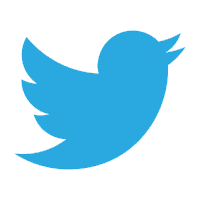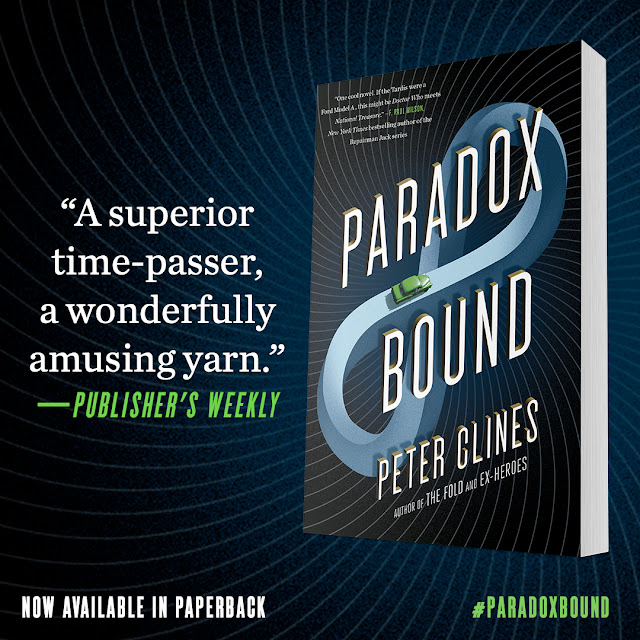So, this may come as a shock to some of you but…
I write books. People often ask me questions about these books. Sometimes the same questions.
See, I’m a big fan of
social media.
Yeah, there are some deplorable folks, but there are a lot of good people, too.
I love that I get to say “hullo” and chat with people about things.
Books. Movies. LEGO.
Games.
However…
It can fray one’s patience to answer the same questions again and again and again because some folks won’t bother to scroll down two or three posts or up through the comments. Between this blog, the Facebook fan page, Twitter… well, that adds up to a lot of people repeating the same questions.
Not you, of course. You just asked that one time without thinking. You’re cool. I’m talking about that other guy. Him. That guy’s so friggin lazy.
We all know it, I’m just the one saying it…
Anyway… rather than get annoyed at someone for asking the same question that I already answered three times this morning in the same thread, I figured I’d scribble up answers to the ten most common questions and pin them here and on a lot of my social media pages.
And then everybody can just ignore that…
1) What’s out next?
Well, we just had the paperback of Paradox Bound come out last week. Hopefully you all checked that out and left kind reviews with all your favorite booksellers.
Two weeks from now, July 17th, my second novel, The Eerie Adventures of the Lycanthrope Robinson Crusoe is coming out as an audiobook almost eight years after it was first released. It’s being narrated by Tim Gerard Reynolds and… well, I’m really looking forward to it. I’ve always had a special fondness for this book, but I know the period writing style didn’t thrill a lot of people. It won’t be as noticeable in a spoken performance, so I’m hoping a lot of you will give it a try and have some fun with it.
Then, if everything times out right, I believe at the end of the year you’ll be seeing Dead Moon, a sort of sci-fi horror story about zombies on the Moon. No, seriously. I think it’s kinda fun and pulpy and creepy.
I guess we’ll see if I’m right.
2) Is Ex-Isle the last Ex book?
Hard to say, but… yeah, it’s looking that way.
The simple truth is, every series has a limited life. Very few people decide to start on book three of a series—they go back and start at book one. So book one always sells the best. Attrition says not as many people show up for book two, even less show up for book three, and so on. It’s always a downward slope heading for that red line where things aren’t profitable. None of the Ex-Heroes books ever lost money (thank you all for that), but all the numbers said book six… Well, the prognosis didn’t look great for book six.
Keep in mind, nothing’s set in stone. Any number of things could make the series surge in popularity and get the publisher more interested. Or, depending on how things work out, I might be able to apply a little leverage. But for now… Ex-Tension is moving to a back burner. Very sorry.
3) What if we did a Kickstarter or a GoFund me to continue the series?

Okay, look, I love the Ex-Heroes books.
Hopefully you all know that.
Those characters and stories got me where I am today.
I love that there are so many fans who feel passionately about it.
I had tons of fun writing them.
But…
The simple truth is, if there were enough people willing to pay for another book, the publisher would still be willing to put it out. Sure, some people might pay twice as much to get one more book, but experience tells me four times as many people wouldn’t pay anything (for one reason or another). There’s pretty much no way this would end up working out.
Plus, my schedule’s set up many months in advance. I already know the projects I’m working on until September of 2019. Doing something like this means I haveto plan on it happening, which means… a potential gaping hole in my schedule when it doesn’t.
Sorry.
4) Will there be another book set in the 14/Fold/Threshold series?
Yes! I’ve started working on it already, and probably going to be diving in right after SDCC (see #10 down below) and the target date is to have it in to Audible by the end of the year, so they can have it out to you in spring or summer of next year.
Also, yeah, we’re calling it the Threshold series now.
5) Why ‘Threshold’?
I talked about it a lot with my agent and the folks at Audible, and we bounced around a few different options (some of which originated over on the fan page) and rationales. We wanted a good, overall title that could reference all these different books with subtle and not-so-subtle connections. Sort of like how King has a lot of stuff that falls under the Dark Tower umbrella even though there are a few specific books telling that story.
Thresholdfits in a few different ways. A threshold is part of a doorway, and doorways figure big into most of this series. It also refers to something reaching a specific critical level—another recurring issue in these books. And, finally, it’s also a reference to an old H.P. Lovecraft short story.
Which has nothing to do with anything, but I thought it was kinda cool…
6) Wait, why do you keep mentioning Audible?
Yeah, about that…
I have a fantastic relationship with Crown, but they have their own tastes and expectations. These two books—Dead Moon and the new Threshold book—just didn’t appeal to them. For a couple of different reasons. And that’s fine. Seriously. I want to stress that none of it is negative. My editor at Crown, Julian, has already talked with me a bit about what we’ll be doing together next year. We’re all cool on that front.
Now, as all this discussion is going on, Audible starts gesturing to me from across the room. I also have a very good relationship with them and it’s worked out very well for everyone involved. There’s a fair argument to be made that the majority of my fanbase is audiobook listeners. Heck, when Paradox Bound made the NYT Bestsellers list, it was with the audiobook version.

So Audible made a very generous offer for these two books.
For
exclusive rights to these two books.
So both of these are going to be audiobook only for the first six months they’re out.
After that, we’re talking to some folks, and I should have some answers for you by the time I update this FAQ.
Yeah, I know this is going to make some of you grind your teeth. My agent and I talked about it a lot, believe me (even with that generous offer). Every other day on the phone for almost six weeks. In the end, I really wanted to tell these stories and this was the best way to do it.
7) Will there be a sequel to The Junkie Quatrain?
Very doubtful. I think a lot of the fun of The Junkie Quatrain was the overlapping- interconnected nature of the stories. It’d be tough to replicate that without feeling kinda forced and awkward. I think we’ll probably have to draw our own conclusions about what eventually happened to those characters. Well, the surviving characters.
Although, one of them may have already shown up somewhere else…
8) Do you make more money if I buy one of your books in a certain format?
This sounds like an easy question, I know, but there’s about a dozen conditionals to any answer I give. Figure a huge chunk of each contract is just all the conditions for getting paid.
For example… format matters, sure, but so does where you bought the book. And when. And how many people bought it before you. And if it was on sale. And who was actually holding the sale. And all of this changes in every contract. What’s true for, say, Ex-Communicationmay not be true for Paradox Bound.
TL;DR—just buy the format you like.
9) Why don’t you like people talking about your books?
To be honest, I’m still stunned and thrilled that people talk about anything I wrote. Seriously. What I can’t stand are spoilers.
I’m thrilled Wakko enjoyed it so much when the protagonist found that and discovered thisand learned about them. When he tells people about it, though—no matter what his intentions—Wakko’s ensuring that other folks won’t have as much fun with the book as he did. It’s like if I tell you how a magician does all her tricks and then take you to see her performance. You’re not supposed to see a magic show knowing how all the tricks work and being aware of the resolutions in advance. It kills most of the fun, because the story structure that created a sense of wonder and discovery has been destroyed.
This is why I avoid those questions in interviews, and why I always ignore/ delete posts that reveal information from the back half of a book (yep, that’s probably what happened to your post). It doesn’t matter if the rest of the post was positive or negative, spoilers = deleted.
And not just my stories! Don’t mess up other stories, either. Movies, TV—if you enjoyed it, try to give other people a chance to enjoy it the same way.
10) Do you have any plans to attend XXXXX-Con?
Maaaaybe.
In a few weeks I’m going to be at SDCC. Later this fall I’ll be at Dragon Con in Atlanta. I’ll give more info on each as they get a bit closer. I think that’s pretty much it. Probably not doing NYCC again this year.
But—things change all the time. If you really want me to be at your local con, let them know! Yeah, them, not me. I’m willing to go almost anywhere I’m invited, but if I’m not invited… there’s not much I can do. And keep in mind that most cons finalize their guest list three or four months in advance, so if your local con’s next month… odds are not in your favor.
So, email them, tweet them, post on their Instagram account. Reach out and let your voice be heard.
11) When are you going to make a movie/ TV series/ cartoon/ graphic novel/video game of your books?
Okay, there’s a misunderstanding of how Hollywood works in this sort of question.
When you see a TV series or film adaptation, it means the studio went to the writer, not the other way around.
I mean, if it was just about the writer saying “make this into a movie,” well… wouldn’t most books be adapted by now?
Everyone would be doing it.
Alas, I have zero say in whether or not Starz wants to do an
Ex-Heroes series or SyFy does a
Lycanthrope Robinson Crusoe movie.
They’re looking for things that have piqued a certain level of interest, and so far these stories of mine have only
just scraped that threshold.
No, me (or you)
writing the screenplay won’t make a difference, unless your name happens to be Terry Rossio, Joss Whedon, or David Koepp—and even then it’s not a sure thing.
12) Wait, wasn’t there going to be a TV series based on 14?

Theoretically, yeah. A few years ago I was approached by Team Downey, the personal production company of that guy who plays Iron Man. Turned out he’s a fan of
14 and wanted to do something with it, and a deal was struck with his company and WBTV.
But… Hollywood’s a big game of if. If a pilot gets shot, if it turns out okay, if the various network execs likes it, if it gets picked up… And some of these ifs are on a time limit. WB paid to push it back once and give themselves more time (which got a bunch of us very hopeful), but… it just didn’t happen.
Which all kinda goes with what I said up above in #11. Robert Downey, Jr. had signed on as an executive producer and that wasn’t enough to get it made.
But I still get to say he liked one of my books.
13) So, is there anything we can do to help?
Well, buying books is always a good step. Hollywood likes to see big sales numbers and interest. If you want to see something—anything—on the air, talk about it a lot on social media. Producers/ directors/ actors all hear about this stuff the same way you do. If #ParadoxBoundor #DeadMoon started trending on Twitter tomorrow, there’d probably be a film deal within a week.
(true fact—an easy way to help do this? Don’t buy books from Amazon. Amazon doesn’t like to report sales figures, so they don’t get included in things like the NYT Bestsellers list. Yeah, I know, a purchase from your local bookstore might cost a buck or three more, but it’s a purchase Hollywood is more likely to notice. Plus, then you’re one of those cool people supporting local businesses…)
(and before you ask, yes, Audible does report sales figures)
14) Wait, wasn’t this a top ten FAQ?
What are you, the freakin’ number police now? Most people are happy to get bonus content. Just go with it.
I can’t believe you wasted one of your questions with this…
15) Will you read my story idea and tell me what you think?
Part of this is a time issue—if I say yes to some folks, in the spirit of fairness I have to say yes to everyone. Now I’m spending all my time doing critiques instead of writing. Not to sound too mercenary, but… writing is how I earn my living.
When someone asks me to read stuff, they’re asking me to give up a few hours of work.
And I do have
this ranty blog just sitting here with
over a decade of writing advice and tips.
It’s also a legal thing. Some folks are lawsuit-crazy, often for no reason,, and the bad ones ruin it for everyone else. Let’s say Phoebe gives me a piece of fanfic to read where she has Harry and Eli showing up at a certain post-apocalyptic film studio. And then, a few years from now, I decide to do a big crossover story. That’s when Phoebe sues me for stealing her material.
Yeah, it sounds stupid, but I’ve seen this happen so many times.
Hell, I’ve actually been
subpoenaed and deposed over a case with less behind it than that example I just made up.
This is why I’m verrrry leery when I get a long message along the lines of “Hey, you know what should happen in your next book…” It’s why some writers have responded with cease & desist orders when they get sent stuff like this. It’s also why I’m not part of the above-mentioned spoiler groups.
16) Will you be my friend on GoodReads?
Nope. Nothing against you (well… most of you), I just don’t like Goodreads. I’d explain why, but I’m taking the Thumper approach.
I post nothing there and spend as little time there as possible (which usually works out to “no time”).
If you see anything there from “me,” it’s something someone else posted.
I understand a lot of folks love the site and if it works for you, that’s fantastic.
I won’t be there.
17) What about Twitter?
Also Loud Howard, my cat, still has hundreds more followers than me. Seriously. So don’t let anyone tell you being cute won’t help you get ahead.
I will say right up front I don’t believe in Twitter high school, where I’m supposed to follow someone just because they followed me. So if that’s your approach, I’ll save you time now…
18) What about Instagram
Getting pretty good at Instagram (also
@PeterClines).
Probably the geekiest of all my social medias.
How is that possible, you ask?
Well, go check it out for yourself…
I’m still not sure if I’m really bad at Instagram or all the people I follow are.
Or maybe Instagram just doesn’t make a lot of sense and I’m the last to know about it…
And I think that covers all the big stuff, yes…?
 Okay, look, I love the Ex-Heroes books. Hopefully you all know that. Those characters and stories got me where I am today. I love that there are so many fans who feel passionately about it. I had tons of fun writing them.
Okay, look, I love the Ex-Heroes books. Hopefully you all know that. Those characters and stories got me where I am today. I love that there are so many fans who feel passionately about it. I had tons of fun writing them. So Audible made a very generous offer for these two books. For exclusive rights to these two books. So both of these are going to be audiobook only for the first six months they’re out. After that, we’re talking to some folks, and I should have some answers for you by the time I update this FAQ.
So Audible made a very generous offer for these two books. For exclusive rights to these two books. So both of these are going to be audiobook only for the first six months they’re out. After that, we’re talking to some folks, and I should have some answers for you by the time I update this FAQ. Theoretically, yeah. A few years ago I was approached by Team Downey, the personal production company of that guy who plays Iron Man. Turned out he’s a fan of 14 and wanted to do something with it, and a deal was struck with his company and WBTV.
Theoretically, yeah. A few years ago I was approached by Team Downey, the personal production company of that guy who plays Iron Man. Turned out he’s a fan of 14 and wanted to do something with it, and a deal was struck with his company and WBTV.  I’m @PeterClines on Twitter. Fair warning–as some of you may have figured out, I’m progressive and I’m a bit more political over there. On Saturdays I also drink a lot and live-tweet bad movies so… you know what you’re getting into.
I’m @PeterClines on Twitter. Fair warning–as some of you may have figured out, I’m progressive and I’m a bit more political over there. On Saturdays I also drink a lot and live-tweet bad movies so… you know what you’re getting into.








